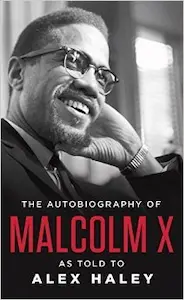The Autobiography of Malcolm X - Summary
Malcolm X and Alex Haley

Introduction
“The Autobiography of Malcolm X” is a powerful and influential memoir written by Malcolm X and journalist Alex Haley. This book provides a captivating account of Malcolm X’s life, from his troubled childhood to his transformation into a prominent civil rights leader. Through vivid storytelling and thought-provoking insights, the autobiography offers a unique perspective on racial injustice, the Nation of Islam, and the struggle for equality in America. This book summary aims to provide an overview of the autobiography, highlighting key themes, events, and the impact of Malcolm X’s journey.
Early Life and Transformation
In the first section of the autobiography, Malcolm X recounts his difficult upbringing in Omaha, Nebraska, and Lansing, Michigan. Born Malcolm Little, he describes the racial discrimination faced by his family, including the violent death of his father and the subsequent struggles his mother faced. These early experiences shaped Malcolm’s perspective on race and fueled his desire for change.
The turning point in Malcolm’s life came during his time in prison, where he discovered the Nation of Islam and its leader, Elijah Muhammad. In this section, the autobiography delves into Malcolm’s transformation and his embrace of Islam. Through his studies and devotion to the Nation of Islam, Malcolm X found a sense of purpose and identity that he had long been searching for.
The Nation of Islam and Activism
As Malcolm X delves deeper into his involvement with the Nation of Islam, the autobiography explores the organization’s teachings and principles. Malcolm becomes a prominent figure within the movement, advocating for black separatism, self-defense, and economic independence. He shares his experiences as a minister and his efforts to recruit new members to the Nation of Islam.
The autobiography also highlights Malcolm X’s controversial views on racial integration, which differed from the mainstream civil rights movement at the time. He believed that true equality could only be achieved through self-determination and the establishment of a separate black nation. These ideas challenged the prevailing narrative of peaceful protest and nonviolence, making Malcolm X a polarizing figure in the fight for racial justice.
Pilgrimage to Mecca and Changing Perspectives
One of the most transformative moments in Malcolm X’s life occurs during his pilgrimage to Mecca, a mandatory ritual for Muslims known as Hajj. This section of the autobiography provides a profound insight into Malcolm’s changing perspectives on race and religion. While in Mecca, he encounters Muslims of various ethnic backgrounds, challenging his previous beliefs about white people.
Malcolm X’s experiences in Mecca lead him to reassess his views on racial separation and the potential for unity among all races. He begins to advocate for a more inclusive approach to the civil rights movement, emphasizing the importance of alliances and solidarity. This shift in perspective marks a significant turning point in his journey and sets the stage for his later activism.
Assassination and Legacy
Tragically, Malcolm X’s life is cut short when he is assassinated in 1965. The autobiography concludes with his assassination and reflects on the impact of his legacy. Malcolm X’s unwavering commitment to racial equality and his unapologetic stance against oppression continue to inspire generations of activists.
The autobiography’s enduring influence lies in its ability to shed light on the complexities of race, identity, and the struggle for justice. Malcolm X’s personal anecdotes and powerful storytelling captivate readers, allowing them to empathize with his experiences and gain a deeper understanding of the systemic racism that persists in society.
Conclusion
“The Autobiography of Malcolm X” is a compelling memoir that offers a unique perspective on the civil rights movement and the fight against racial injustice. Through Malcolm X’s personal journey, readers are exposed to the harsh realities of discrimination and the transformative power of self-discovery.
From his troubled upbringing to his involvement with the Nation of Islam, Malcolm X’s story is one of resilience and determination. The autobiography not only provides a historical account of his life but also challenges readers to question their own beliefs and prejudices.
By sharing his experiences, Malcolm X invites readers to confront the uncomfortable truths of systemic racism and inspires them to take action. His legacy continues to resonate, reminding us of the ongoing struggle for equality and the importance of fighting for justice.
In conclusion, “The Autobiography of Malcolm X” is a must-read for anyone seeking a deeper understanding of the civil rights movement and the complexities of racial identity. Malcolm X’s powerful narrative and thought-provoking insights make this autobiography an enduring masterpiece.